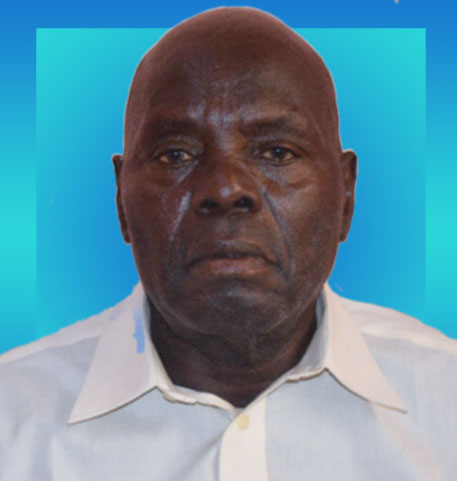By Joseph Akim Gordon
After many years of the liberation struggle that resulted to the independence of South Sudan, the citizens were so much delighted of achieving independence in July 2011. The citizens expected to harvest a peace dividend, but unfortunately, only within two years of independence, we ignited a war against ourselves to the extent that other countries refer to us as warmongers.
When we visit other countries in the region for conferences our colleagues from these countries used to ask us why you like war do, you have been fighting the Arabs in Sudan for many years and we supported you to become free from Arabs.
But it is disturbing when you started fighting yourselves, it seems you like war more than peace, now what do you gain from war, as a neighboring country, some of your people have come back again as refugees, the influx of your people to countries of East Africa has negative consequences.
If we knew that you were warmongers, we would not have supported you; we felt that, as a fellow African country, it should be supported to free itself from the Arab yolk, and you abused our generosity. Your country is potentially rich in natural resources; if you tapped these natural resources, you would have been the richest country in our region.
We supported you in the hope that we would be able to share your abundant resources through commercial dealings and the creation of employment opportunities in the region, so all this dream got nullified by your action in the war. It is devastating.
If these war energies were diverted to socio-economic development, this would have cemented peace in your country and made a difference in the region. We are afraid that if you continue the path of war, there will be no development in your country.
You will witness political instability, and worse of all, you will fragment this country. Similar to what is happening in Sudan, Sudan failed to develop the country equally, fermenting the problems to the extent that the frustration of the citizens was swept under the carpet and ignored.
When the time comes when the citizens feel that enough is enough, this conflict will likely lead to civil war and the fragmentation of the country into ethnic-based regions. So, the best option for South Sudan is to move fast to resolve all political, ethnic, and economic grievances causing the current state of affairs in South Sudan, which will result in total peace in South Sudan and socio-economic development.
The situation in Sudan will encourage you not to take the path of Sudan, which is devastating. In a few months, most cities will be reduced to ashes, and the country will be badly destroyed and will take a long time to rebuild.
It will need massive resources to rebuild the country once the warring parties come to their senses. The political resolution of political differences is cheaper than waging war. The warring parties should have realised that war is very expensive in terms of human lives and property, including the destruction of infrastructure.
It is impossible for the Government to develop this country alone, so development partners, UN agencies, NGOs, and other investors will come to assist in development.
We very much appreciate the role of the development partners, UN agencies, and NGOs in supporting the South Sudan development effort, and we also appreciate the role of humanitarian agencies that have saved the lives of our citizens in refugee camps in neighboring countries and, at the same token, supported internally displaced people (IDPs).
Although humanitarian support saves lives, the longer it continues, the longer it creates dependency syndrome. As we experienced during the Anya-Nya liberation struggle, the refugees were supported by UNHCR for a long time.
When limited peace prevailed and the refugees returned home, they were not able to do farming, as before it took them a long time to adjust to farming. So, the humanitarian support should be done in phases, and they should be encouraged to do limited farming or small business. And finally, the humanitarians should shift to development, where they gradually become self-dependent.
Now that the world is experiencing wars, conflict, political instability, poverty, and unemployment, the UNHR will have no capacity to support all the situations; there is fatigue as far as the donor countries are concerned. The government alone cannot bring development to the country.
The development partners, the UN agencies, and the NGOs complement the government ‘s efforts. In many cases, we have noted that the government does not have the capacity to contribute to development efforts.
Most development projects belong to the government, so they must contribute to the development initiative, so the government should not expect these institutions to work alone because the government is in the driver’s seat.
All development policies emanate from the government, and no development institution can freely move to a state, payam, or boma without the knowledge of the national government. The development partners should work in collaboration with the government.
We have noted with concern some government employees seconded to work in projects that are supported by the development partners and others in which the government employees seconded to the project have their government salary topped or receive some incentives, but others are completely opposed to topping the salaries of seconded staff or paying incentives and prefer the government to pay incentives for the seconded staff.
Many of the senior government employees get the equivalent of twenty dollars per month, which is inadequate for a decent living. The government should come up with a ruling that all government employees’ salaries should be topped or pay incentives for this matter.
This would motivate the employees and render good services. The good thing is that the government is in the process of improving the salary structure, but many dispute whether this will happen. It was suggested an increase of 400%, which is still below inflation, but it will not help much. The increment should be based on the inflation rate affecting the country.
With numerous challenges, it becomes hard for the government to fulfill its responsibilities; for instance, the Maputo Declaration encourages all African countries to provide 10% of their budget for agricultural development; the Government so far is unable to commit itself because of financial constraints; and it is supposed to pay membership fees to some development partners like the European Union, IGAD, IFAD, FAO, and others, which the government is unable to pay for because of a lack of financial resources.
For the development partners, UN Agencies, NGOs, and others, the people of South Sudan appreciate the support you are rendering to South Sudan in socio-economic development. The support is for the people of South Sudan, not political parties, as they come and go, but the people of South Sudan are there to stay.
If your mandate from your base is to support the people of South Sudan, then you continue with your responsibilities. Let God bless you and South Sudan.
The author can be reached through e-mail: akimgordon222@gmail.com




